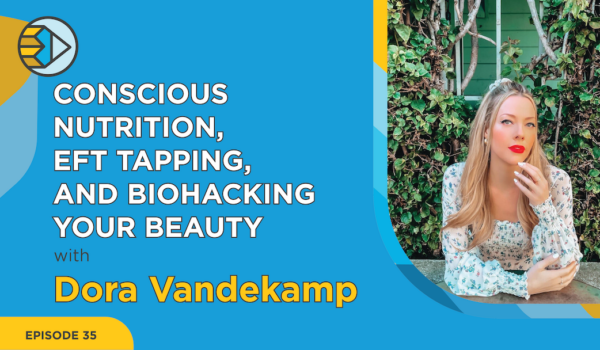
EP 31: English Grammar 101: Two Commonly Confused Words
This week we continue our weekly mini series. We are investigating the foundations of English grammar, starting with the basics and moving on from there. This week we discuss two commonly confused words in the English language: by and until. Join Cath Anne as she reviews the foundations of English grammar.
Looking for study tips, help with essay writing, or advice on how to be a better student? Welcome to The Homework Help Show, a weekly show where we teach, assist, and offer valuable insights for student life. From study hacks to writing tips, discussions about student mental health to step-by-step guides on academic writing and how to write a resume, we’ve got you covered. Want your questions answered? Write them below or join the conversation on social media using the hashtag #askHHG
TRANSCRIPT:
Cath Anne: [00:00:06] Hi everyone. Welcome to the Homework Help Show. My name is Cath Anne and I am your weekly host of the Homework Help Show and Top Writer with Homework Help Global. On this show we provide you with valuable content for your academic and student life.
Cath Anne: [00:00:16] This week on the show we are going to continue our Grammar 101 series. This will be one of the last episodes and we are going to talk about two different words and how to use them in the English language and in writing.
Cath Anne: [00:00:30] First we will talk about the difference between ‘by’ and ‘until’. Let’s begin. ‘By’ marks the deadline for an action or event to finish. So, if we are going to try to remember the word ‘by’ think of it as a deadline. It marks the point where an action completes or is replaced by another action. Think about using it as a word when something ends or comes to a stop. You must finish the action ‘by’ this point so there is a deadline. For example, yesterday I was writing a grant application and I had to have it in by 5pm.
[00:01:46] ‘By’ marks a point in the future when the action is going to finish. So, if we look at the past, we have the present, and ‘by’ is going to occur right here, before the future. In the example sentence, “I will be at the office ‘by’ 7pm”, as 7pm is the deadline, this is the point in which the speaker will be at the office. The speaker is not at the office now, but by the 7pm deadline, the speaker will be at the office. This is how we use, ‘by’. Think about it like a deadline.
Cath Anne: [00:01:57] Let’s continue onto the second grammar point, which is a similar word. We are looking at the word ‘until’. Also remember that ‘until’ has two casual forms. So, we can use the word till T-I-L-L or we can use the word apostrophe T-I-L in the place of ‘until’.
Cath Anne: [00:03:38] Sometimes when you’re speaking or even in some situations where you are writing you might be able to use till or ’til. But, they are much more casual and colloquial. They are not as formal as the word ‘until’. So, remember that the word ‘until’ is always going to be correct. So, when you use ‘until’ you are always be in the right. Particularly when you are doing academic writing, you will want to keep this in mind and you will likely always want to use ‘until’.
Cath Anne: [00:04:14] So, let’s talk about when we use ‘until’. We use ‘until’ to talk about a continuing action. So, a continuing situation or a continuing state. It is not in the present, it is not in the future, but we know that it is going to change or stop. So, something is happening and we know there is going to be a situational change and that is when we use the word ‘until’. The key difference here is a continuing situation or a continuing state as opposed to with ‘by’ we have a definite deadline.
Cath Anne: [00:04:21] There is a definite time or deadline that indicates that we use the word ‘by’ whereas ‘until’ is a continuing situation. So, something is true now, but it might not be true in the future. ‘Until’ marks the point where the action or the state is going to finish or change. Rather than thinking about it as a deadline like ‘by’ we can think about it as a key point in the future where action A continues until a point where we use ‘until’ and a second action begins. Something is going to change at the ‘until’ point. With ‘by’ we don’t use the nuance of an action changing, we only have the nuance of the deadline. Here ‘until’ is going to show that something is going to change or that something is going to happen.
Cath Anne: [00:06:22] So, we’ll use a similar sentence and as you can see we are using pretty much the same sentence. So, you can say, “I’ll be at the office until 7pm.” Here we have the future tense of I’ll or I will. This sentence shows us that the speaker is at the office right now and that they will be at the office ‘until’ 7pm, which is the changing point. At 7pm the speaker is no longer going to be at the office and they will likely be leaving the office, which indicates a change in action.
Cath Anne: [00:07:17] So, I hope we can practice some examples right now which I have written on the board. So, I will read them out loud because I notice that the writing is a little bit small. So, let’s figure these sentences out. “He has to find a new job *blank* March.” “March” indicates a deadline, a time in the future. Because there is a deadline, we will use the word ‘by’. The second sentence is, “I’m not going to go to bed *blank* I finish the movie.” In this sentence, the speaker will not go to bed, so that’s one action, and there is a second action, “I finish the movie”. So, in this case, we will use the word ‘until’ because we are ending one action and we are continuing with a new action.
Cath Anne: [00:08:41] Finally, we have the sentence, “I’m not going to be there *blank* 8pm.” Now, in this case the sentence is a little bit tricky. 8pm is certainly a deadline, however, it also indicates that something is going to change. The time is changing, so it is a bit more nuanced here. So, in this case we can use either ‘by’ or ‘until’. However, keep in mind that this is going to significantly change the meaning of the sentence. So, for example, if we use the word ‘by’ we can say, “I’m not going to be there ‘by’ 8pm.” 8pm is the deadline. This indicates that the speaker will not be at the event or at the location by 8pm, maybe they are running late.
Cath Anne: [00:08:41] In the second situation, if we use the word ‘until’ we can say, “I’m not going to be there ‘until’ 8pm.” This implies something totally different. What this implies is that the speaker is possibly running late, and that they are not going to be at the party until 8pm. So, they will be there, but they will not be there ‘until’ 8pm and that is going to change.
Cath Anne: [00:10:26] So, always keep in mind that there will be situations where ‘by’ and ‘until’ are both correct, but the meaning of the sentence will change significantly depending on which word you choose. .
Cath Anne: [00:10:47] So you’ll want to do a bit more study and practice using some sentences to figure out the best approach to using these words.
Cath Anne: [00:11:02] So, I think we can leave it there for this week. Next, week we will be tackling the difference between ‘really’ and ‘very’. These are two really interesting words that have a lot in common and we will also be talking about some common grammar mistakes in English writing and English speaking and that will wrap up our short series on Grammar 101.
Cath Anne: [00:11:30] I hope this session was of benefit to you. If you like this video and you want to see more like this, if you like this format, please give it a thumbs up and subscribe to our channel to get access to more of our content. If you are interested in viewing any of our other videos or our podcasts, make sure to check out all the links to our other social media platforms, in the comments below. If you have any questions, comments, or ideas, feel free to share them with us in the comments, we always love to hear from you guys. Join my live on Instagram every Monday at 7pm EST. I’ll check in and have a quick chat to check in and see how you guys are doing throughout the school year. We always love to connect and just check in with you guys and see how you’re doing. Thanks for tuning in to Episode 31 of the Homework Help Show.
Cath Anne: [00:12:23] Hope you see you all again soon. Hope this was of benefit. Take care everyone.
Share:

